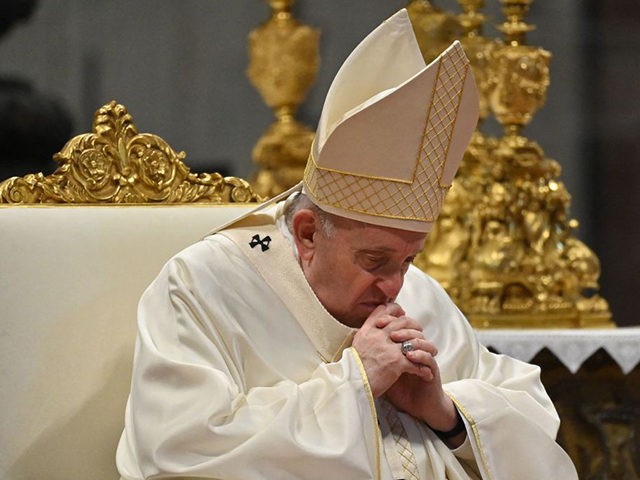Left-wing Brazilian liberation theologian Leonardo Boff said Wednesday that for the past nine years Pope Francis “has been receiving furious attacks from traditionalist Christians and white supremacists, almost all from the North of the world, the U.S. and Europe.”
Mr. Boff, known for his impassioned indigenism and disdain for European Christianity, also claimed that an unidentified shadowy group of financiers invested millions of dollars to “depose” Francis from the papacy, “as if the church were a company and the pope was its CEO.”
Pope Francis has been “persecuted,” Boff insists, for geopolitical reasons, disputes over power, divergent visions of the church, and disagreement over the environment.
Until the middle of the last century, “the Catholic Church was from the first world,” he declares. “Now it is a church of the third and fourth world,” yet “European conservatives nurture a sovereign disdain for the South, for Latin America.”
“The church-great-institution was an ally of colonization, an accomplice of indigenous genocide and a participant in slavery,” Boff states, returning to a favorite theme of his.
Boff famously squared off with then-Cardinal Joseph Ratzinger in 1992, voicing his wish that the 500th anniversary of Columbus’s discovery of America might be “the year that represents the resumption of their [indigenous] religions, which were just and worthy.”
In response, Ratzinger recalled that on the occasion of the most recent rebuilding of the main Aztec temple in 1487, a minimum of 20,000 people bled to death over four days as human sacrifices to the sun god, since the sun was believed to live on the blood of human hearts.
It will be “difficult for us to encourage the restoration of this religion,” Ratzinger added.
In Latin America, Boff argues in Wednesday’s essay, the church is predominantly made up of basic ecclesial communities, where the faithful live as equals, where prelates and priests live in the midst of the people, “never with their backs turned to the people as ecclesiastical authorities, but as shepherds at their side, with ‘the smell of the sheep.’”
“Popes and doctrinal authorities of the Vatican tried to curtail and even condemn such a way of being a church, not infrequently with the argument that they are not a church because they do not see in them the hierarchical character and the Roman style,” Boff continues. “That threat lasted for many years until, finally, the figure of Pope Francis burst in.”
According to Boff, Francis emerged from this new ecclesial culture, expressed by the preferential option for the poor and “by the different aspects of liberation theology that accompany it” and thus gave legitimacy to this way of living the Christian faith, “especially in situations of great oppression.”
Moreover, Francis no longer presents himself as the traditional pontiff, “dressed in pagan symbols, taken from the Roman emperors,” Boff insists.
He refused to live in a pontifical palace, which would have made Saint Francis roll over in his grave, in order to live “in a simple guest house, Santa Marta,” he writes. “There he gets in line to be served and eats together with everyone.”
Francis has distanced himself from all pomp, doctrinalism, and canon law, which “causes outrage among conservatives and reactionaries,” Boff writes.
And so traditionalists reject a pope who comes from afar and who “brings another style to the center of power of the Vatican, closer to the grotto of Bethlehem than to the palaces of the emperors,” Boff says.
“Perhaps what most bothers Christians anchored in the past is the vision of the church lived by the pope,” he states. “Not a church-castle, closed in on itself, in its values and doctrines, but a ‘field hospital’ church always ‘on the way to the existential peripheries.’”

COMMENTS
Please let us know if you're having issues with commenting.